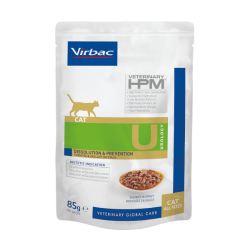
When it comes to choosing a dog breed, you'll want to consider the size, temperament, and lifestyle of the dog you'll choose. You might consider a larger dog like a bulldog if you have limited space or live in an apartment. Bulldogs are a low-energy breed that isn't fussy about living arrangements. Bulldogs can also be great for family life.
Labradors
Labradors, a breed that is great with children, are the ideal dog for families. They are intelligent and full of energy, making them perfect for families with children of all ages. However, young labs can be overbearing, so if you have small children at home, it might be best to get an older lab.
Keep in mind that Labradors can develop skin conditions. Labradors are prone to allergies, parasites and grass seeds that can irritate the ears. Otitis, a condition that causes intense itching, can occur from this irritation.
Boxers
Boxers are a very energetic breed and are great for active families. They should not be around babies and small children. Boxers can be scary for children under five years of age, so it is best to keep them away from them. However, if you choose a Boxer that's well-trained, you can expect it to be a great addition to any family.

Boxers are great for families because they're intelligent and good with children. They are energetic and love being outside. However, they can be quite clumsy and should not be left to their own devices with young children. They are intelligent and get along with children and babies because of this.
Cavalier King Charles Spaniels
Cavaliers are happy, gentle creatures that love human interaction. Cavaliers are a wonderful choice for families with young children. They can be gentle around other dogs but may become nervous around larger dogs. It's best to allow them to play with other dogs when it is safe for them.
They are intelligent and gentle. They get along well with children as well as other dogs. They can also be playful and cuddly, making them perfect for kids of all ages. Their soft coats and small size make them easy to care for. They make an excellent choice if you live alone.
English Springer Spaniels
English Springer Spaniels make wonderful family pets. They are affectionate, friendly dogs and great family pets. They are well-known for their ability to "spring" at a game and beautiful appearance. They require an active lifestyle but they make great additions to any family.
These intelligent, energetic dogs need lots of exercise and plenty of space. Their high-spirited and driven nature makes them great friends for children. They are affectionate and love to please, as their breed was developed to hunt with people. This breed is very intelligent and can be trained.
Golden Retrievers

The friendly and gentle nature of the Golden Retriever makes them a great pet for families. They love to play with children, but aren't overly rough. When they play with young children, they should be closely supervised. Golden Retrievers are easy to train. They also get along well with children. They are gentle with children, and will not become aggressive unless they are provoked.
A golden retriever makes a wonderful family pet. However, they should be introduced to your child gradually. The more time spent together, the stronger the bond will be. The baby will soon be recognized by the dog as being gentle and protective. This is good for both the child, and the dog. The golden retrievers make excellent cuddlers. Once they form a bond, many will sleep beside a baby.
Poodles
According to a survey conducted by 34 people, the Poodle is a great choice for families that have children. The breed is great for children and can even be taught how to behave. Poodles are active and playful, so they need to be exercised daily. A Standard Poodle needs to exercise for at least one hour per day while a Miniature Poodle needs 30 minutes.
Poodles are friendly and gentle with children. A toy poodle might be too fragile for rough play. A standard poodle will need patience and training to adapt to children. Children should be closely supervised while playing with the dog. Parents should also establish rules for their children.
FAQ
What age should a child have a pet?
Pets should not be owned by children under 5 years of age. Young children are not advised to have pets such as cats or dogs.
Most children who have pets are bitten by them. This is especially true for small dogs.
Some dogs, such as pit bulls or other aggressive breeds, may be aggressive towards certain animals.
A dog can be friendly but not aggressive, even if it appears friendly.
You should ensure that your dog is trained properly if you do decide to purchase a dog. You should also supervise your child when she is playing with the dog.
Which pet is your favorite?
The best pet is the pet you love. There is no single right answer. Each person will have his or her own opinion on which pet is best.
Some believe cats are more intelligent than dogs. Others believe dogs are more loyal, loving, and affectionate. Others still believe that birds are the best choice for a pet.
No matter which type of pet you decide on, you have to choose what type of personality you want.
If you are outgoing and friendly, a dog may be right for you. A cat might be the best option for you if your personality is reserved and shy.
Also, take into account the size your house or apartment. A smaller apartment means you'll need a less large pet. A larger house, on the other hand will require you to have more space.
Remember that pets need lots of attention. Pets need to be fed frequently. They should be taken out for walks. You should also brush and clean them.
You'll be able pick the best pet for you if you have all of these knowledge.
How much should I budget for my pet?
One good rule of thumb: Budget around $200-$300 per Month.
It all depends on where you are located. You'd spend approximately $350 per calendar month in New York City.
Rural areas may require you to spend only $100 per month.
It's important to remember that you should buy quality items such as a collar, leash, toys, etc.
Also, consider purchasing a pet crate. This will keep your pet secure during transport.
How to train your pet
Consistency is crucial when training a pet dog or cat. You must make sure you are consistent in how you treat them. They will distrust you if they perceive you as being mean. They might believe all people are evil.
You can't expect them to know what to do if they aren't treated consistently. This could make them anxious about other people.
The best way to teach a dog or cat is by using positive reinforcement. If you reward your cat or dog for doing something well, they will desire to repeat the behavior.
If they are guilty of a crime, punishing them will be associated with bad behavior and not rewards.
Good behavior should be reinforced with treats, such as food and toys. Also, try giving praise whenever possible.
Clickers can help you train your pet. Clicking is when you press a button on your pet to tell him he did well.
This method works because animals understand that clicking means "good job".
Show your pet the trick first. Then reward him by asking him to do the trick.
Give him praise when he does it right. Don't be too proud. Don't praise him more than once.
You should also set limits. Do not allow your pet's guests to jump on you. Or don't allow him to bite strangers.
Make sure your pet is well-supervised so that he doesn’t harm himself.
What are some things to consider before purchasing an exotic pet
You need to be careful before you decide to buy an exotic pet. It is important to decide if the animal will be kept as a pet, or if it will be sold for profit. If you intend to keep the animal as a pet then ensure you have enough space. Also, you need to determine how much time and effort it will take. You will need to take time to look after an animal. But, they are worth it.
You must find someone to purchase your animal if you intend to sell it. Make sure the person buying your animal knows how to take care of it. It is important to not overfeed your animal. This could lead to health problems down the line.
It is important to research everything about exotic pets before purchasing them. Many websites have information on many species of pets. You should be careful not to fall for any scams.
Statistics
- It's among a relatively few companies that provide policies with a full (100%) coverage option, meaning you are not responsible for any co-payment of bills. (money.com)
- In fact, according to ASPCA, first-year expenses can sum up to nearly $2,000. (petplay.com)
- It is estimated that the average cost per year of owning a cat or dog is about $1,000. (sspca.org)
- Here's a sobering reality: when you add up vaccinations, health exams, heartworm medications, litter, collars and leashes, food, and grooming, you can expect a bill of at least $1,000 a year, according to SSPCA. (bustle.com)
- A 5% affiliation discount may apply to individuals who belong to select military, law enforcement, and service animal training organizations that have a relationship with Nationwide. (usnews.com)
External Links
How To
How to choose the best name for your pet
Name selection is one of most important decisions when you adopt a pet. You want your pet's name to reflect their personality.
It is important to consider how other people might refer to you - for instance, if they are going to be called by their name in conversation. Finally, think about how you'd like to be referred. What do you prefer, for example, "dog" or pet?
Here are some tips to help you get started:
-
Select a name to fit your dog's breed. If you know the breed (e.g., Labradoodle), look up the names associated with that breed. Or ask someone who knows dogs well to suggest a name based on the breed.
-
Consider the meaning behind the name. Some breeds have names that are based on people or places. Others are nicknames. One Labrador Retriever was named Rover because he loved to run!
-
Now think about what you'd like to call yourself. Do you prefer "dog" to "pet?" Would you rather call your dog "Puppy", "Buddy" or "Buddy?"
-
Don't forget to include the owner's first name. Although it's a good idea to name your dog with your last name, don't forget to include the names of your family members. You may have your dog as a part of your extended family.
-
Keep in mind, many pets have multiple nicknames. For example, a cat might go by several names depending on where she lives. You might call her "Kitty Cat" home, but she might be "Molly" on the road with her friends. This is especially true of cats who live outdoors. They often adopt their names to fit their environment.
-
Be creative! There are no rules that say you have to follow a certain naming convention. You just need to choose something that is unique and memorable.
-
Check that your chosen name isn't used by any other person or group. This will ensure that you don't accidentally steal another's identity.
-
Finally, remember that choosing a name for your pet isn't an exact science. Sometimes it takes time to determine whether a name is right for your dog. You can keep searching until you find your perfect match.